 EN
EN
 PT
PT
The little vampire in the double breasted suit
Product: Book
Trim size in cm: 21x29,7cm
Pages: 52
ISBN: 9788859024354
Publication date: 01/03/2021
Suitable for: Primary 2nd level (ages 8-10)
REQUEST A SAMPLE OR MORE INFORMATION
 Rights sold to:
Spain, Thailand, Latin America, China Mainland
Rights sold to:
Spain, Thailand, Latin America, China Mainland
The mysteries of Villa Tenebra are back for children in the fourth grade of primary school: a fun and colourful workbook able to involve children in learning mathematics in a fun and exciting way, thanks to:
In this fourth volume, we have to help the De Tenebris cousins, Arthur the butler, and Gatto Matto find the little vampire in the double breasted suit who has taken Arthur’s suit!
The exercises
In this monstrous adventure in Villa Tenebra, the children can complete many consolidation activities and review the math topics from fourth grade, in particular:
The stickers
While reading and solving the exercises, children will collect cute and colourful stickers to stick on a map to solve the mystery!
The book contains:

Valeria Razzini

THE SERIES
The mathematical mysteries of Villa Tenebra is a colourful and fun series designed to improve mathematical skills in primary school. Together with cousins Ombretta, Oliver and Ofelia De Tenebris, the butler Arthur, and Mad Cat, the children will have to carry out a series of mathematical exercises in order to solve a mysterious case. Motivated by this goal, they will have fun and engage in the proposed activities spontaneously and without being afraid to make mistakes. In addition, they will be able to practice not only numerical and calculation skills, but also logical and problem solving skills.
The series is made up of five volumes, to be used with children in 1st, 2nd, 3rd, 4th and 5th grades in primary school.
CONTENTS
The workbooks in The mathematical mysteries of Villa Tenebra series offer an illustrated narrative and numerous exercises to consolidate and review the mathematics topics of 1st, 2nd, 3rd, 4th and 5th grades of primary school, divided by subject. The fifth volume will be released on May 2021. Each volume also includes the map of Villa Tenebra and stickers of some mysterious objects. By doing the exercises, children will have to gather the clues needed to solve the case:
In the first part, the result obtained from some exercises will correspond to the number of steps to be taken on the Villa Tenebra map. By following Mad Cat’s directions, the children will find the person responsible for the disappearance of one of Villa Tenebra’s most precious objects;

In the second part, the children will gradually collect stickers of some mysterious objects to stick on the back of the map in order to find the lost object!

THE CHARACTERS
 Ombretta
Ombretta
 Oliver
Oliver
 Ofelia
Ofelia
 Arthur
Arthur
 Mad Cat
Mad Cat
THE VOLUMES IN THE SERIES
THE MATHEMATICAL MYSTERIES OF VILLA TENEBRA 1
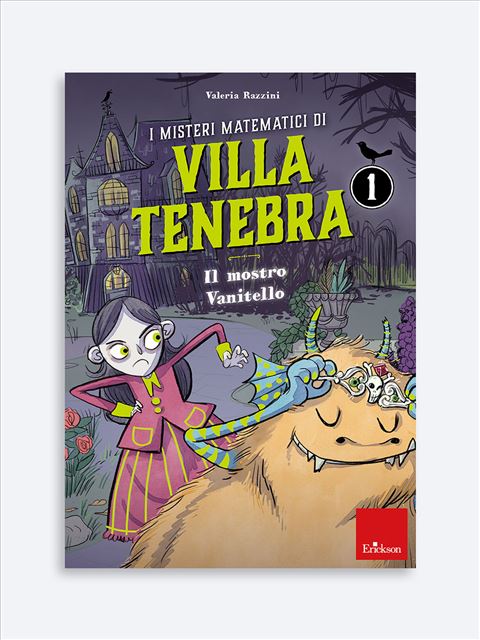
The Vain Monster
Where is Ombretta's crown?
The first volume in the series offers consolidation and review exercises on the main mathematics topics of first grade in a Gothic setting, where the protagonists are grappling with a strange and fun mystery to solve. Activities on numbers from 1 to 20, more and less, addition and subtraction, tens and units, space and shapes, etc. have never been so exciting!
THE MATHEMATICAL MYSTERIES OF VILLA TENEBRA 2
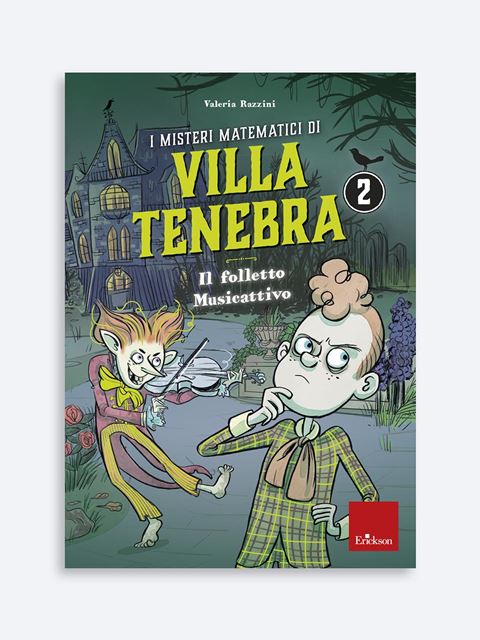
The Musical Goblin
Who stole Oliver's violin?
To solve this mysterious case, the inhabitants of Villa Tenebra invite students to carry out "terrifying" exercises on the topics of mathematics in second grade: numbers up to 100, addition and subtraction with an abacus and in columns, multiplication and division (with and without remainder), multiplication tables, 2D and 3D shapes, units of measurement, relationships ... But will the violin be returned to its owner?
THE MATHEMATICAL MYSTERIES OF VILLA TENEBRA 3
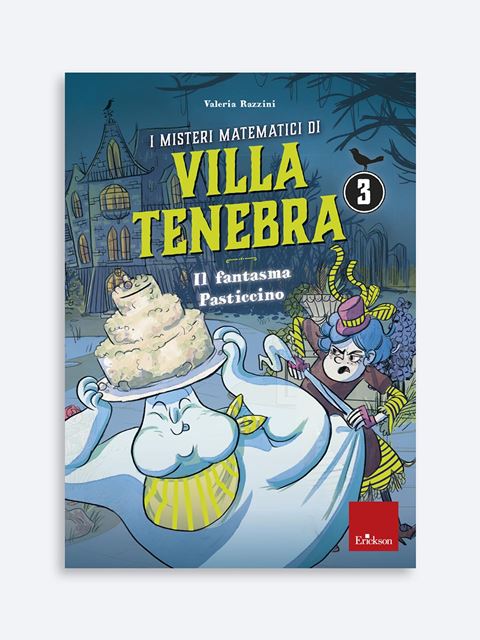
The Messy Ghost
Where did the party cake go?
The third volume continues with another "fearful" mystery to be solved, proposing many exercises for the enhancement of logical-mathematical skills in third grade: numbers over 1000, the properties of the four operations, fractions and decimals, measurement, shapes, data and predictions. And in the end, will the cake be found?
THE MATHEMATICAL MYSTERIES OF VILLA TENEBRA 4
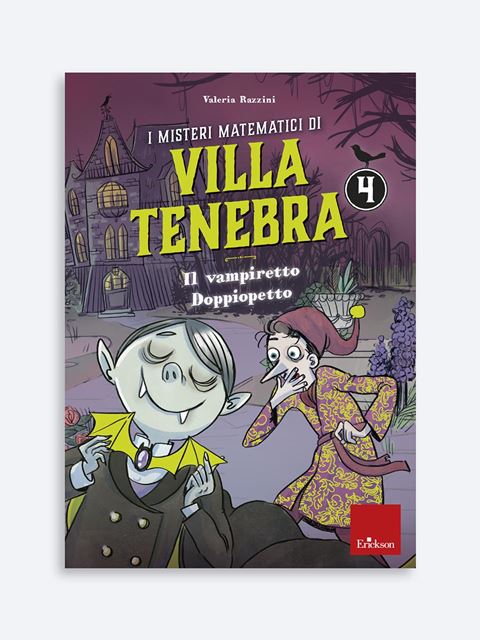
The little vampire in the double breasted suit
Who has taken Arthur’s tailcoat?
The adventures at Villa Tenebra continue for primary school children in fourth grade, who wish to learn mathematics while having fun: numbers over 10,000; addition and subtraction with multiple carrying and borrowing as well as with the proof; multiplication and division with multiple digits, the inverse and with mental calculations; fractions and decimals; measurement; symmetry and rotations; polygons; relations and probability.THE MATHEMATICAL MYSTERIES OF VILLA TENEBRA 5
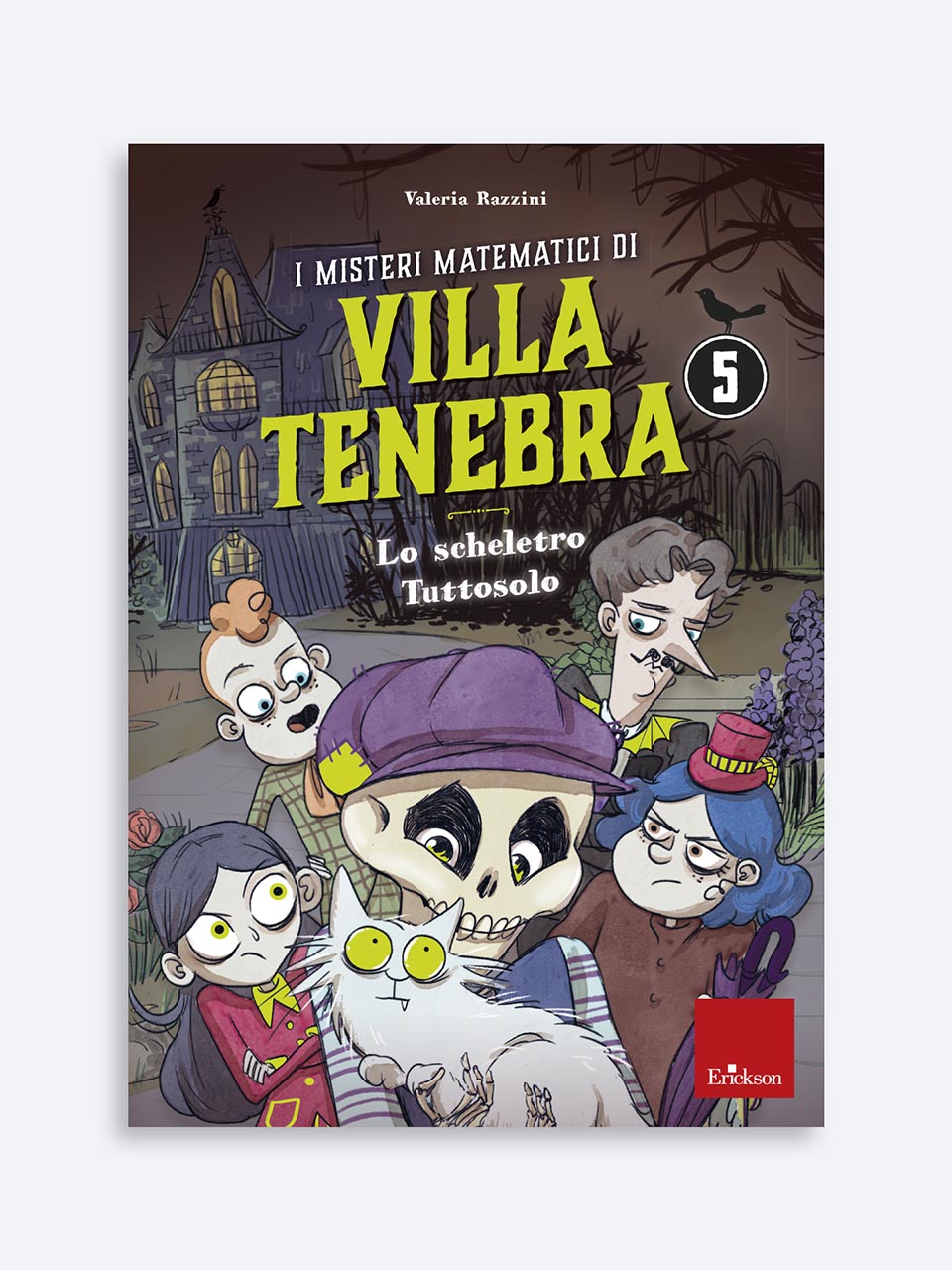
The lonely skeleton
Who kidnapped Mad Cat?
The last volume in the Villa Tenebra series offers scary mathematics and geometry exercises for fifth grade: powers, relative numbers, multiples, expressions, isometries, solids, probability, relations. This volume was created for students in the fifth grade of primary school who want to learn mathematics while having fun.
THE AUTHOR
Valeria Razzini is primary school teacher specialised in inclusive teaching and has worked with various institutions as a trainer and teacher in Communications. She completed a second degree in Primary Education Science at the University of Reggio Emilia with a specialisation in Specific Learning Disorders and Special Educational Needs. She has published various essays on many aspects of mathematical didactics.